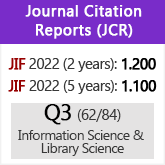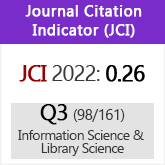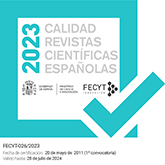The role of institutional databases in the analysis of universities’ scientific activity
DOI:
https://doi.org/10.3989/redc.2011.2.797Keywords:
Institutional databases, scientific evaluation, universities, indicatorsAbstract
Given the difficulties faced by universities for precisely gauging their scientific activity, due mainly to the lack of comprehensive national and international information sources containing all their research output, we propose the use of the universities’ own institutional databases. An extensive survey of Spanish universities was performed, in order to discover which universities have these databases and to determine their potential interest and usefulness. Also, an in-depth analysis was performed of the information contained in the databases of two universities, the University of Barcelona and the Carlos III University of Madrid. The results obtained reveal the state of these information resources in the Spanish university system as well as their ability to accurately determine the characteristics of research carried out in the universities and to prepare scientific profiles of each. Finally we provide several recommendations for improving this institutional resource.
Downloads
References
Bellavista, J.; Escribano, L.; Grabulós, M.; Guardiola, E.; Iglesias, C., y Viladiu, C. (1992). La organización de la investigación en la universidad. Revista española de investigaciones sociológicas, 59, 301-309. doi:10.2307/40183827
Bonaccorsi, A.; Daraio, C.; Lepori, B., y Slipersaeter, S. (2007). Indicators for the analysis of Higher Education Systems: some methodological refl ections. Research Evaluation, 16 (2), 66-78. doi:10.3152/095820207X218141
Cañibano, C., y Bozeman, B. (2009). Curriculum vitae method in science policy and research evaluation: the state of the art. Research Evaluation, 18 (2), 86-94. doi:10.3152/095820209X441754
Gomez, I.; Bordons, M.; Fernández, M. T., y Morillo, F. (2009). Structure and Research Performance of Spanish Universities, Scientometrics, 79 (1), 131-146 doi:10.1007/s11192-009-0408-0
Hicks, D. (2004). The Four Literatures of Social Science. En: Moed, H., Glänzel, W. y Schmoch, U. (eds.), Handbook of Quantitative Science and Technology Research (pp. 473-496). Dordrecht: Kluwer Academic Publishers.
Iribarren-Maestro, I.; Lascurain-Sánchez, M. L., y Sanz-Casado, E. (2009). The use of bibliometric techniques in evaluating Social Sciences and Humanities. En: Åström, F.; Danell, R.; Larsen, B.; Schneider, J. W. Celebrating Scholarly Communication Studies: A Festschrift for Olle Persson at his 60th Birthday, pp. 25-37. Eds. International Society for Scientometrics and Informetrics.
IPIQ (2008). SCI/SSCI Journal Classification File. Prepared by ipIQ for NSF under NSF Contract No. SRS0651343 on September 3, 2008.
Larédo, Ph. (2003). University Research Activities: On-going Transformations and New Challenges. Higher Education Management and Policy, 15 (1), 105-123.
Lepori, B.; Barré, R., y Filliatreau, Gh. (2008). New Perspectives and Challenges for the Design of S&T Indicators. Research Evaluation, 17, 33-44 doi:10.3152/095820208X291176
Nederhof, A. J. (2006). Bibliometric Monitoring of Research Performance in the Social Sciences and the Humanities: a review. Scientometrics, 66 (1), 81-100. doi:10.1007/s11192-006-0007-2
Rapport de l’OST 2008. Classification de disciplines scientifiques. Correspondance A4-3 (DISC-9).
Reale, E.; De Filippo, D.; Gómez, I.: Lepori, B.; Potì, B.; Primeri, E.; Probst, C., y Sanz, E. (2009a). Methodologies for the characterization of the publication output of higher education institutions using institutional databases, ISSI International Conference, Rio de Janeiro.
Reale, E.; De Filippo, D.; Gómez, I.; Lepori, B.; Probst, C.; Potì, B.; Primeri, E., y Sanz, E. (2009b). Methodologies for the characterization of the publication output of higher education institutions using institutional databases, Final Report, PRIME NoE, http://www.prime-noe.org.
Torres-Salinas, D. L., y Moed, H. F. (2009). Library Catalog. Analysis as a tool in studies of Social Sciences and Humanities: An exploratory study of published book titles in Economics. Journal of Informetrics, 3 (1), 9-26 doi:10.1016/j.joi.2008.10.002
van den Besselaar, P.; Edler, J.; Heimeriks, G.; Henriques, L.; Laredo, P.; Luukkonen, T.; Nedeva, M.; Schoen, A., y Thomas, D. (2007). Toward ERA configurations. An experiment on Chemistry, Worshop «Beyond the dichotomy of national vs. European science systems. Configuration of knowledge, institutions and policy in European research», Bonn, 30 May.
van Raan, A. (2004). Measuring Science. En: Moed, H., Glänzel, W. y Schmoch U. (eds.), Handbook of Quantitative Science and Technology Research, Dordrecht: Kluwer Academic Publishers, pp. 19-50.
Downloads
Published
How to Cite
Issue
Section
License
Copyright (c) 2011 Consejo Superior de Investigaciones Científicas (CSIC)

This work is licensed under a Creative Commons Attribution 4.0 International License.
© CSIC. Manuscripts published in both the printed and online versions of this Journal are the property of Consejo Superior de Investigaciones Científicas, and quoting this source is a requirement for any partial or full reproduction.All contents of this electronic edition, except where otherwise noted, are distributed under a “Creative Commons Attribution 4.0 International” (CC BY 4.0) License. You may read here the basic information and the legal text of the license. The indication of the CC BY 4.0 License must be expressly stated in this way when necessary.
Self-archiving in repositories, personal webpages or similar, of any version other than the published by the Editor, is not allowed.

















